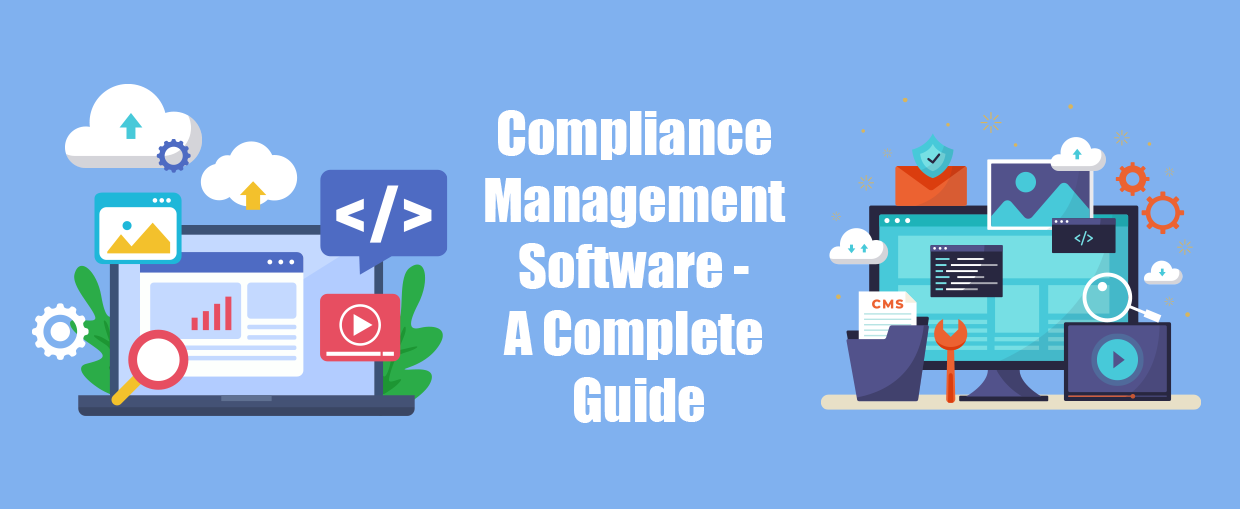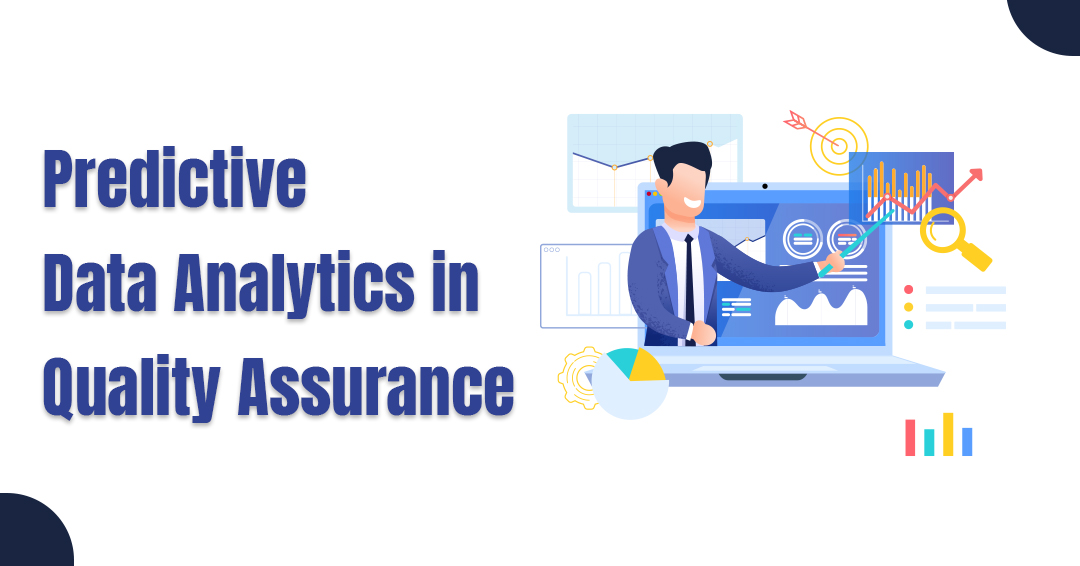Why do organizations need compliance management software or why do they hire developers to build one? Well, there are certain things that lead to the necessity of it.
Compliance is more than just following regulations; it is about instilling a sense of accountability and responsibility. Compliance is vital for any organization, regardless of sector. It is essential when working with legal frameworks, laws, or environmental and health requirements. Embracing them with software built by a professional software development company promotes operational excellence and social integrity, while also creating best practices that benefit your organization.
With the rise of cybersecurity threats, such software has grown in importance for organizations. They hire dedicated software developers and QA consulting services to assist them in developing such software. It can help them manage the intricate web of laws and regulations while increasing defenses against changing cyber threats as well.
This article digs into how compliance management software can serve as a strategic asset rather than merely a protective device. We will discuss the advantages of such software, its development processes, and must-have features.
Benefits of Developing Compliance Management Software
Compliance management software has become an essential weapon in the armory of modern enterprises. It provides numerous advantages that simplify operating operations and assure regulatory compliance. Here are the primary benefits of leveraging this technology in your organization with the help of a software development company.
1. Enhanced Regulatory Compliance
Compliance management software helps businesses comply with rules. It automates the complicated process of tracking and adhering to numerous legal and industry standards, making regulatory compliance more manageable and error-free.
Enterprises hire dedicated software developers to build software of this type for an automation edge. These solutions are not only effective but also adaptive to the ever-changing regulatory landscape. It guarantees that organizations easily satisfy compliance duties, reduce legal risks, and maintain a solid reputation in their respective sectors.
2. Enhanced Risk Management
Implementing compliance management software considerably improves a company’s risk-management capabilities. This technology along with expert QA consulting services identifies possible compliance issues, enabling proactive measures to prevent legal and financial consequences. A compliance management system’s effectiveness is based on its ability to follow regulatory changes and ensure that organizations adjust to new regulations as soon as possible.
It provides insights into possible risk areas, allowing for the development of effective risk mitigation methods. Moreover, this solution developed by hiring developers streamlines the risk assessment and management process, promoting a culture of proactive compliance. As a consequence, companies may preserve operational integrity while also safeguarding against unanticipated regulatory issues.
3. Enhanced Operational Efficiency
The incorporation of custom compliance management software into corporate processes dramatically improves efficiency. Automating typical compliance procedures considerably decreases the need for manual intervention, resulting in quicker and more precise process execution. Businesses hire developers with expertise in compliance management software development to develop solutions that exactly meet their specific demands for productivity improvement.
It results in smoother business operations and less time on compliance paperwork with more focus on essential business activity. The reduced procedures also result in faster decision-making and higher overall productivity, demonstrating the significant influence of tailored compliance software on operational efficiency.
4. Real-Time Compliance Monitoring
Compliance management software or technologies have transformed the way firms monitor compliance. They enable real-time tracking and give an ongoing review of compliance status, ensuring that companies are constantly in compliance with the latest regulations. This constant monitoring is critical in a continuously changing regulatory environment, enabling quick changes and actions.
The technology’s real-time capabilities developed by software development companies considerably decrease the risks of delayed compliance recognition. It protects them against both legal and financial fines. This instant insight and responses are critical for sustaining a strong and compliant operational framework.
5. Optimized Documentation and Reporting
Corporate compliance software enables streamlined paperwork and reporting, and the difficult work of keeping large records and producing thorough reports. Businesses can automate the compilation of compliance data by developing corporate compliance software by hiring dedicated software developers. This ensures accuracy and timeliness. This automation not only saves time but also improves the accuracy of compliance data.
The software’s ability to create complete reports with simple mouse clicks gives clear visibility into compliance status, allowing informed decision-making. Additionally, reduced paperwork improves audit preparedness by making it simpler to establish compliance with regulatory authorities, emphasizing the organization’s commitment to meeting industry standards.
6. Robust Data Security and Privacy
Compliance management systems bring forth increased data protection and privacy. It assures that sensitive information is handled and maintained according to legal requirements. It is important to implement a bug-free compliance management system with the help of QA consulting services. These systems frequently necessitate stringent data protection policies that protect against unwanted access and breaches.
This degree of protection is critical in an age where data privacy is vital. Similarly, the technology helps preserve transparency in data handling operations and fosters confidence among stakeholders. By putting data security and privacy first, organizations can successfully negotiate the complexity of information management in a regulated environment.
7. Cost Reduction through Automation
Automation results in considerable cost savings, which is a critical advantage of compliance management solution development. By automating typical compliance procedures, the system reduces the need for human labor, which lowers labor expenses. This efficiency lowers operating costs and improves accuracy, hence avoiding costly compliance mistakes. Automation in compliance management optimizes operations, freeing up resources for other vital corporate activities. Compliance management systems developed by hiring developers results in the strategic deployment of resources for total operational cost reductions. This makes it a financially viable investment for firms looking to enhance their compliance operations.
8. Centralized Control and Oversight
The centralized control and supervision aspects of compliance management software provide a uniform picture of all compliance-related operations throughout the business. It allows more efficient tracking and administration of compliance activities, hence increasing organizational efficiency.
It ensures that compliance regulations are consistently applied, removing inconsistencies and gaps in regulatory conformity. This extensive monitoring capability integrated by hiring developers enables faster discovery and rectification of compliance concerns, resulting in a strong and compliant operational environment. Moreover, unified management streamlines reporting, allowing regulators and stakeholders easy access to accurate compliance data.
9. Enhanced Stakeholder Confidence
This confidence originates from the transparent and responsible structure that compliance management solutions promote inside a business with the help of a software development company. Stakeholders, including investors, consumers, and regulatory agencies, benefit from knowing that the company strictly adheres to compliance norms.
This growth strengthens the organization’s reputation for reliability and trustworthiness, which is essential in today’s business climate. It lowers legal challenges and financial penalties while increasing stakeholder trust. Compliance management systems built by hiring dedicated software developers assure regulatory conformance while also creating a strong, trustworthy brand image.
10. Tailored to Meet Specific Industry Needs
Compliance management systems are highly adaptable to meet the regulatory and operational needs of many industries. Through customization, it can handle sector-specific concerns and compliance regulations in several industries.
This personalization along with QA consulting services assures organizational compliance with applicable rules and regulations along with peak functional efficiency. It provides more focused and effective compliance management, ensuring companies stay on top of their compliance journey.
These systems are key tools for organizations seeking to improve operations while lowering regulatory compliance software development expenses. Its application increases productivity and strengthens a company’s regulatory compliance structure.
The Development Process for Compliance Management Software
The creation of compliance management software is a rigorous and multifaceted procedure. It includes several steps, each of which is crucial to ensuring that the application fulfills regulatory standards. Here are the critical stages that take this complex process from conception to deployment.
1. Requirements Analysis and Planning
Creating bespoke compliance management software begins with planning and extensively assessing needs when you hire developers. This step entails determining the precise regulatory criteria that the software must follow and being perceptive of the client’s unique operating procedures. It is critical to establish the software’s scope, objectives, and deliverables so that it meets the client’s compliance requirements.
2. Design & Architecture
During the design and architecture stage, developers or software development companies come up with a software blueprint. This involves describing the software’s structure, user interface, and interactions with other systems. This stage ensures that the architecture supports compliance and scalability functionalities to meet the business’s changing demands.
3. Development and Coding
The real software development takes place here. By hiring dedicated software developers, the design can be turned into code, and functions defined during the planning process can be implemented. This stage requires thorough coding to attest that the system efficiently manages compliance activities ranging from data management to report production.
4. Testing and Quality Assurance
QA consulting services are essential in compliance management solution development. This step examines the software for defects, security vulnerabilities, and compliance with the specified criteria. Ensuring the software’s dependability and efficiency is critical to its success.
5. Deployment and Integration
Following testing, the application is deployed in the client’s environment. Hiring developers can help you integrate it with current systems for seamless functioning. This step entails configuring the solution to work seamlessly with the organization’s existing IT infrastructure as well.
6. Maintenance and Updates
After deployment, the attention moves to software maintenance and updates. Due to the changing nature of compliance laws, compliance management software requires regular upgrades. This guarantees that the expense of developing one is justified throughout its lifespan, as it continues to provide value by adapting to new rules and technological improvements.
Each element of the development process is critical to ensure that the custom compliance management system fulfills an organization’s particular compliance demands. It also justifies the investment for its development and upkeep.
Top Features for Compliance Management Software Development
Before thinking about investing in compliance management software, organizations need to determine its key features. It should be based on their specialization and area of expertise. Here are some of the main ones you should pay attention to.
1. Regulatory Compliance Tracking
Integrating this feature with the help of a software development company can help organizations monitor and ensure compliance with numerous regulatory requirements and standards. It also entails making appropriate changes, tracking changes in compliance standards, and giving a comprehensive picture of compliance status.
2. Fraud Management
This feature can be integrated by hiring dedicated software developers. It primarily focuses on detecting, preventing, and mitigating unlawful or fraudulent activity inside an organization. It includes techniques or technologies for recognizing abnormalities, investigating suspicious activity, and putting protections in place to prevent fraud.
3. Process Management
The process management function improves an organization’s internal operations to assure compliance and efficiency. It entails recording and monitoring diverse processes and workflows that comply with industry best practices and other regulatory requirements.
4. Document Management
This feature focuses on storing, retrieving, and managing compliance-related documents. It incorporates access rights, version controls, and audit trails to verify that authorized users have access to the correct documents and that they are up to date.
5. Audit Trails and Logs
This feature creates, gathers, and stores a full record of system events and other user activity. It ensures comprehensive accountability and transparency, allowing companies to monitor changes and activities while also accessing sensitive information for inquiry and compliance verification.
6. Task Management and Workflow
The task management capabilities aid in the streamlining of compliance-related tasks and procedures. It primarily entails delegating roles, setting deadlines, and automating sequential actions to guarantee that compliance-related operations are completed efficiently and on time.
7. Vendor Compliance Management
This function is solely focused on monitoring, ensuring that third-party providers follow the organization’s regulatory obligations and other industry norms. It entails assessing vendor performance, developing processes, and managing risk for continuous compliance inspections.
End Note
So, there you have it – all about compliance management software and the crucial things you need to know about establishing it. For this, make sure you partner with a credible custom software development company that specializes in this software. They will help you develop a unique solution by incorporating best-of-breed technology with extensive regulatory knowledge to provide you with economical and high-quality software.









